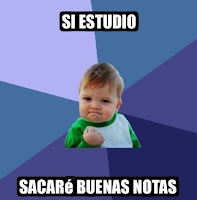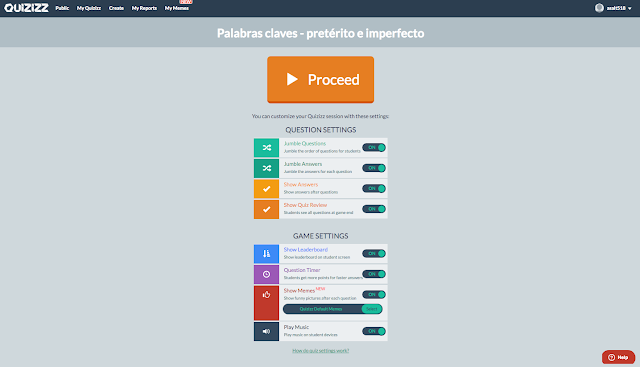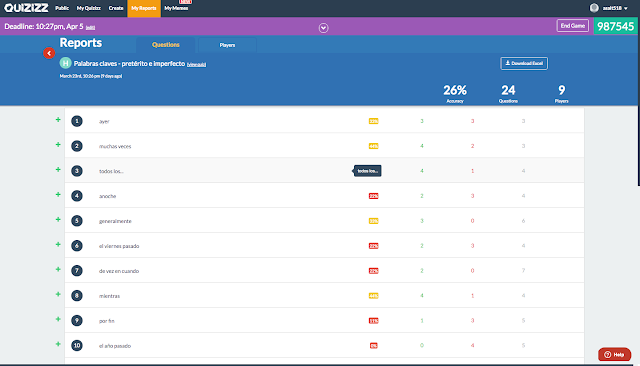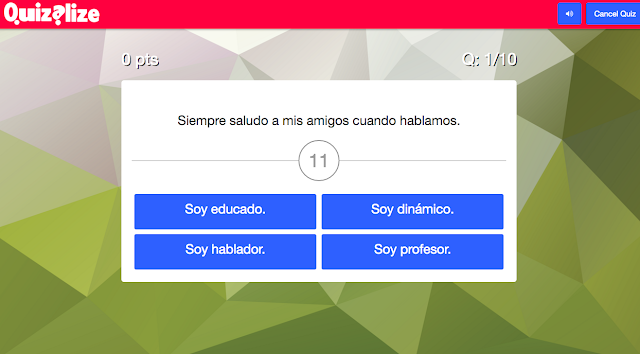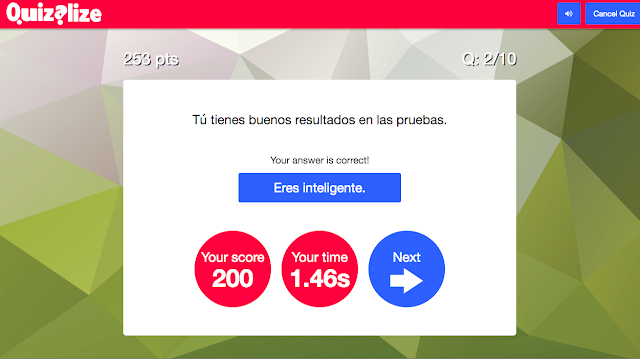
This year as a staff we are looking at differentiation, what we currently do and sharing good practice on staff days and in departmental meetings. I personally would say that I struggle with the challenges of differentiation in the traditional terms of multiple worksheets to choose from, etc. However I am enjoying the different ideas we are coming up with and seeing how pupils respond to them.
A fairly recent arrival to the Spanish Department is our Challenge Grid. I first spotted a tweet by Jake Hunton https://twitter.com/jakehuntonMFL and Jake kindly emailed me his template to use and adapt. The basic premise is that pupils should see how many points they can accumulate in 15 mins. This is one for our Form 1 pupils on the topic of physical description (obviously when it is displayed as a powerpoint, there won't be underlining)

Another option is to give them a worksheet with sentences with different points values and tell them they need to score a certain number of points, as demonstrated here by my colleague's worksheet.

A third idea we are trialling around choices is an Extension PPT. My colleague has made this first one and I have then made another for the Form 3 topic of clothes.
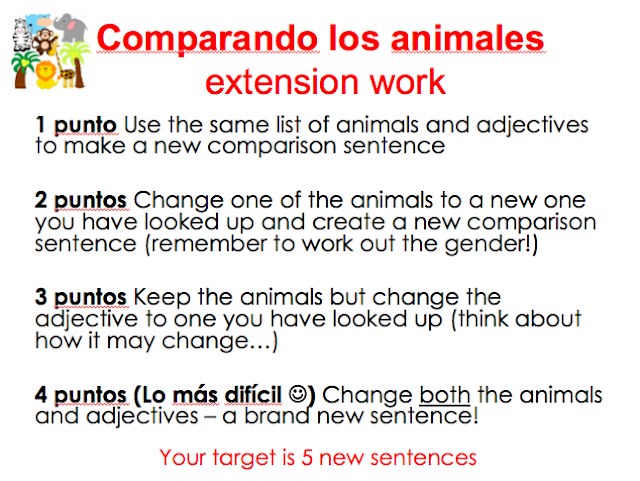
Another staff focus this year is marking for improvement. And surely there is no greater differentiation than tailoring the learning to suit the individual pupil. As part of this, I am looking at feedback inc highlighting the correct work in A level essays rather than showing what's wrong and witholding their score until they have had DIRT time. The pupils have really liked the positive highlighted marking and they are now learning to apply the mark scheme better as they look at what they have done well and write their own www and ebi
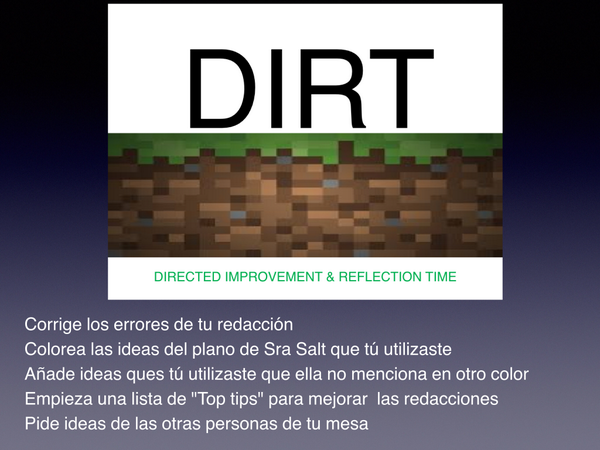
I am building DIRT time into lessons at all levels, including using our purple pens for self-reflection. It is enlightening and rewarding, for the pupils and for me.
Another marking and feedback idea I am excited to try out is LIFT, one of many ideas I have magpied from the great Gianfranco Conti https://gianfrancoconti.wordpress.com/2016/02/21/six-things-i-tried-out-this-year-which-really-enhanced-my-teaching/
"LIFT, or Learner Initiated Feedback Technique .... consists of questions about linguistic items they are using in their written pieces that they annotate in the margin of the page they are writing on. For example, if they are not sure whether a clause requires the subjunctive or conditional mood, they will underline or circle the verb and write on margin: “Is this verb supposed to be in the subjunctive? Why/Why not? This year, I have used it more consistently, extensively and, more importantly I have insisted on higher quality questions. It has made me enjoy giving feedback more and my students have reported benefitting from it"
Further reading I've really enjoyed on marking and differentiation can be found at https://gianfrancoconti.wordpress.com/2015/05/12/five-things-you-should-do-when-you-correct-your-students-essays/ as well as http://justtryingtobebetter.net/marking-is-feedback-is-differentiation-is-planning/
As well as these newer ideas, there are strategies that I have been using for months or years that are also individualising the learning and hopefully therefore differentiating. By creating iBooks at A level and some at GCSE, I am allowing pupils to work at own speed and choose their activities. The drawback from the pupil perspective is that some pupils may not be good at timing and pacing themselves and I have found that some don't cope so well and need more of a guiding hand to stay on task. The same has happened with setting their own HWs at A level. It has been excellent for many pupils but I need a better system for checking what pupils have done and some don't want to choose their own homeworks or don't do it and try to get away with it. At the moment they have a choice of a Learning Log or a simple tick grid.

We also have Challenge Corner with Challenge Cards, Jenga with accompanying Spanish sheets, Spanish novels, translations of books like Diary of a Wimpy Kid and Harry Potter, magazines and comic books. This year I've also brought in the idea of Cushion Corner, so that pupils who finish first aren't 'penalised' by being given another worksheet but can choose what they would like to do from any of the above to extend their learning.
An idea that is bandied about a lot now on Twitter is Takeaway Homework or giving pupils a choice when it comes to CATs and that's something that we would like to look at as a department. For me the difficulty is balancing the choice for the pupils (which I love) with the need for CAT scores for report cards, so we'll need to look at that.
Finally if you haven't seen it, check out https://www.tes.com/teaching-resource/the-differentiation-deviser-6233159, 81 slides of differentiating ideas for the classroom.



